There've only been dribs and drabs of rain in Waikato not enough to build up pasture and merino ewes are back on the hills in Marlborough - their lambs have been sent away to graze in lowland vineyards for the winter. Listen to On the Farm for more on conditions on farms and orchards around the country.
In Northland around Whangarei there's been a good bit of rain this week and it's still warm - 19 degrees was expected on Friday. It's pushing the grass along ahead of winter... "That'll get us out of jail," a farmer told us. With 160 millimetres-plus in the past two weeks he said he was rapt with the way things were going on farm. He's weaning spring calves over the weekend, dehorning and vaccinating and getting the firewood in.
By the end of the week around Pukekohe, many irrigation systems throughout the district were still operating in the settled dry environment. At the moment, more land is lying bare than being planted as growers prepare or decide what their next crops will be.
In Waikato it's still very dry. There've only been dribs and drabs of rain and pasture covers need building up. It's still warm enough for grass to grow but more moisture is needed. Dairy farmers aren't rushing out to buy supplements like palm kernel which has gone from 300 to 320 dollars a tonne at the beginning of the year to as high as 550 dollars now. Urea - for fertiliser - has doubled in price over the period. The payout is certainly making up for the rising cost of inputs but a consultant says farmers are likely choosing to dry off earlier than buy in feed.
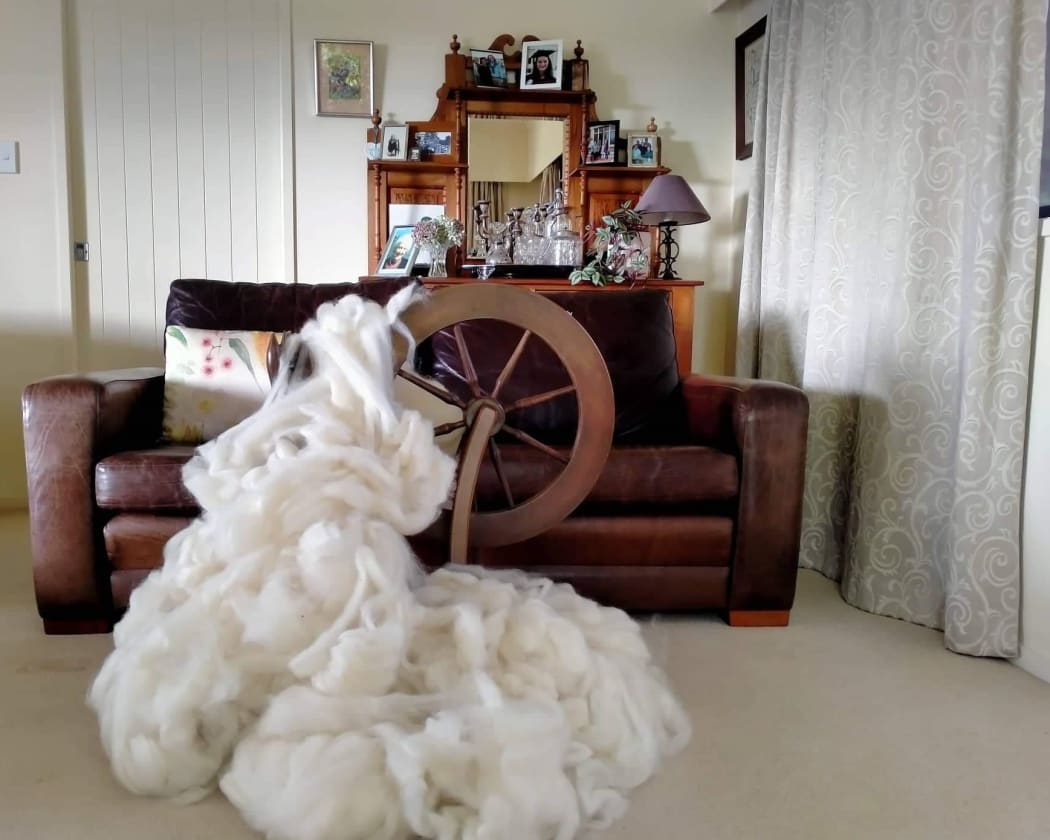
Photo: Karen McLeay
Dairy farmers in south Taranaki are preparing to dry off their cows and also don't seem to be tempted to milk longer because of the good payout unlike previous years. Most have reasonably good covers and stock are in good condition. They've had enough good rain just in time after a fairly dry season. In central and northern parts the feed situation has been tighter. The province is about six to seven percent down in production. Farmers have been coping despite Covid going through.
Around Gisborne some nice sunny days pushing along grass growth are a great relief for farmers battling with recent heavy rain and flooding. Slippery tracks and blocked roads have been making it difficult to move stock about but the fine weather is helping dry things out. Pregnancy scanning's under way, cull cows are off to the works with fewer problems getting space and the bigger kiwifruit and apple growers are relieved to be finishing their harvest.
Things are ticking along nicely for a Bay of Plenty dairy farmer although he could do with a bit more rain. Dairy farmers around about are drying off a little earlier than normal. Some are still feeding out supplements to make the most of the high milk price. With the kiwifruit harvest in full swing comes reject fruit - another good source of nutrient rich feed for cows. But you have to be careful - cows love them and can gorge on them and there's a risk of choking. Our contact says you don't want to stand too close at the other end either! He still has 25 cull cows to send away and there is a three week wait. Sheep and beef farmers too are having to wait to get their prime stock away off to the works. High costs mean transport companies are trying to be economical and have good loads each way so it's an issue of logistics.
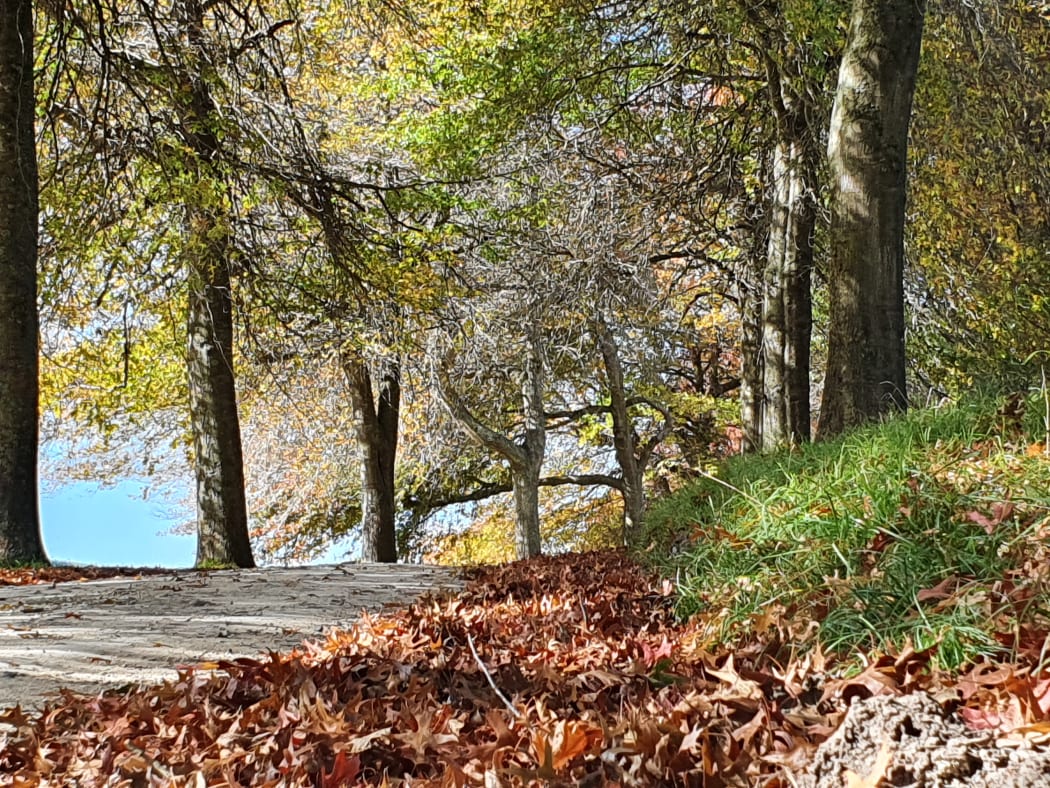
Autumn colours in Hawke's Bay Photo: RNZ/Sally Round
Fine weather and school holidays mean a few more hands to help bring in feijoas which are being harvested at an orchard in Hawke's Bay. The fruit this year is plump and juicy after the good growing season. The grower has been able to catch up on the harvest after no picking over the numerous public holidays which can add a lot to costs. Another grower also took advantage of the fine weather to get contractors in to spread dark rich compost on old maize paddocks near the coast. He's preparing the soil for crops which will help regenerate the soil before hemp seed goes in in spring.
It was another corker autumn day in Rangitikei when we called. The farmer said he had had the luxury of weaning his calves later than normal and was on to some R and M like gorse spraying and fencing. Even though it has been green and kind he could do with more rain. He's towards the end of lamb finishing and some more were about to head off on the truck. He's almost down to winter numbers now. It feels like the meatworks are starting to catch up after the slowdown due to Covid issues. The only niggle is there's a bit of facial eczema around which is reasonably late for the time of year.
In Wairarapa, the week has been kind and benign and most people are feeling very happy with grass still growing and colder nights lessening concerns around facial eczema. The rams are still out and the ewes' first cycle is just finishing. Our contact has just put some winter crops in and the oats have shot out of the ground. The main topic of conversation is on-farm inflation and with the rise in fuel prices, anyone with a truck is looking to pass the increasing cost on.
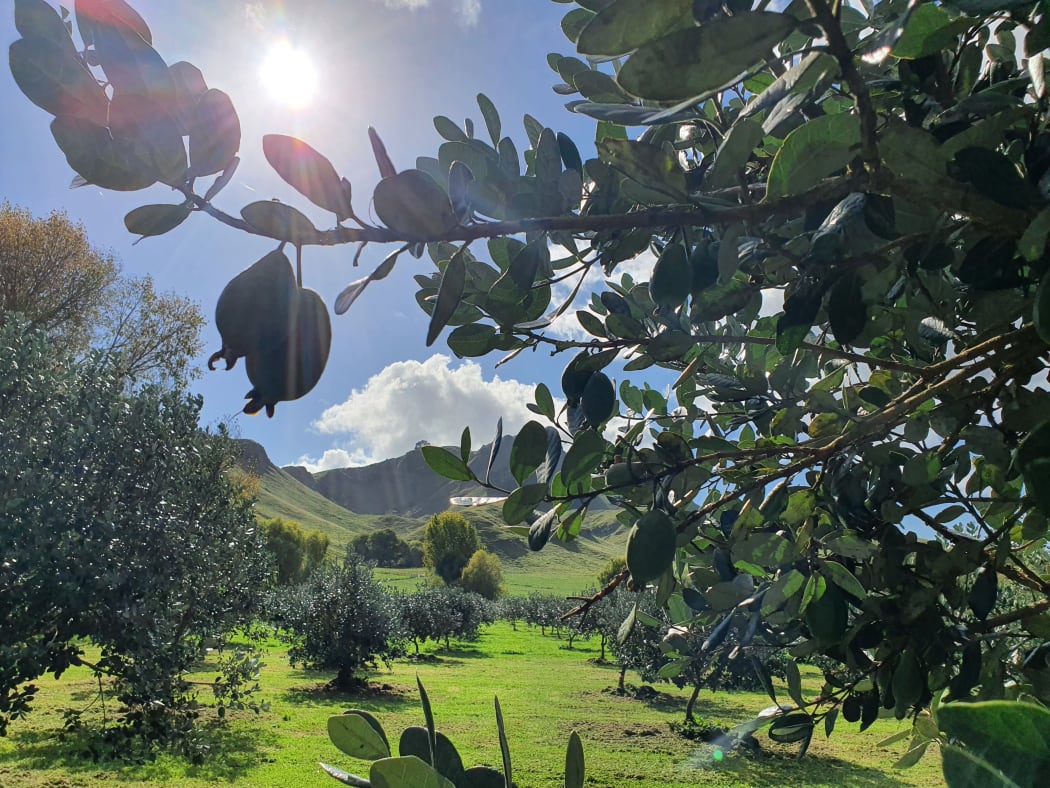
Photo: RNZ/Sally Round
In the Nelson/Motueka region temperatures have been reasonably kind this week. There's been a little bit of rain, but more would be appreciated. On one farmer's farm the ram went out last week and with ewes in good condition there are hopes tupping will go well and plenty of lambs will be the result in spring. Lambs are heading off to the works in dribs and drabs to get the farm down to winter stocking rates. There's nothing to complain about price-wise and there haven't been hold-ups getting them away in this district
A farmer at the top of the Waihopai Valley in Marlborough says last week's 45 millimetres of rain was welcomed and the mild weather this week has helped kick start some grass growth. Stock-wise cattle and calves have been going to the sale yards in Blenheim, while the merino ewes are back on the hills. Their lambs have been sent away to graze in lowland vineyards for the winter. The farmer's diversifying into deer on the property too. He says the animals are settling in well but the fencing contractor got Covid, so there's still a bit of set-up work to finish before winter kicks in.
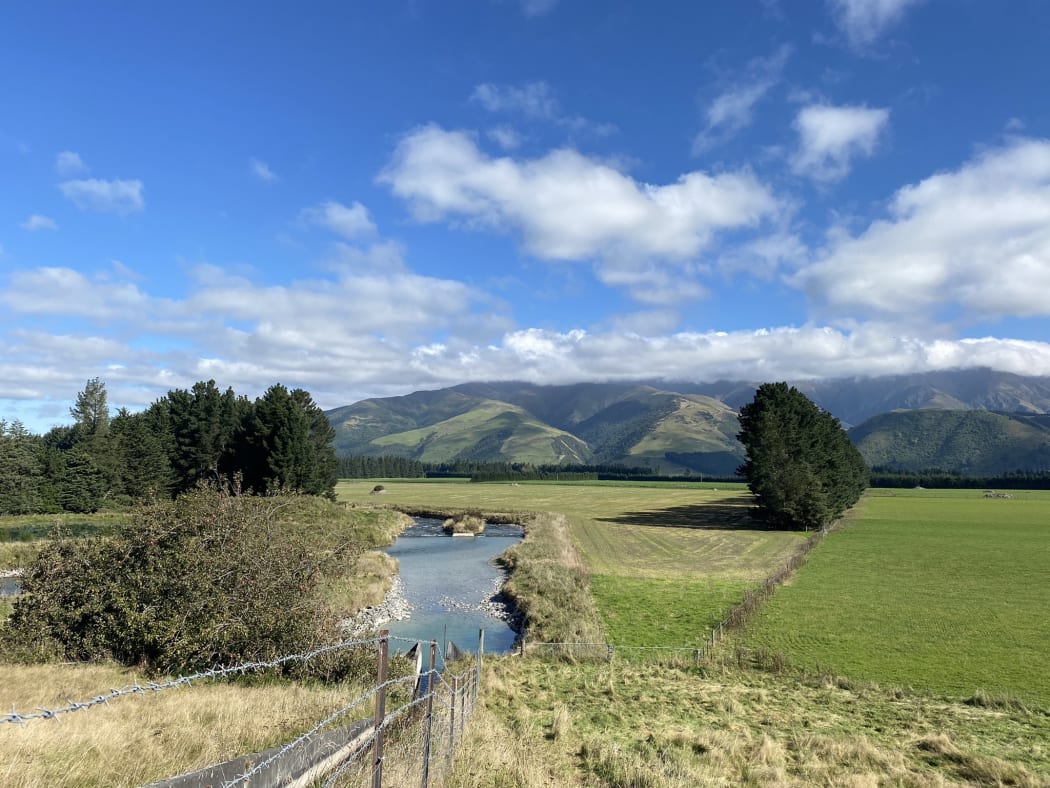
Photo: Riley Kennedy
It's been another great week in Canterbury with weather as good as you could expect for the time of year. Conditions are excellent for newly establishing seed and grain crops. Maintenance time is beginning with fencing and other repairs carried out over the next couple of months.
On the West Coast our Lake Brunner farmer was just about to start spreading lime on his paddocks when we called. He had about 30 tonnes to do. Hydrated lime reacts very rapidly in moist soil to neutralise acidity; the farmer says it sweetens the grass. Milking's going well and on par with last year. The cows are mainly on grass and getting a top-up of baleage. Across the district there's still a bit of maize being harvested and summer feed crops are going in.
In South Otago, a Clydevale farmer says it's been the toughest season since he's started farming. Over the past couple of weeks he's recorded 50 millimetres of rain but up until then the farm was brown. In fact he says March, with only four millimetres, was the driest month on record since 1968. That was when his father started farming on the land. Cows are on 16 hour-a-day milking and he's hoping they'll keep going until late May. They're getting through heaps of silage though. Out on farm some overdue farm maintenance has been done and he's putting in 25 hectares of Douglas Fir trees in gullies and fencing them off.
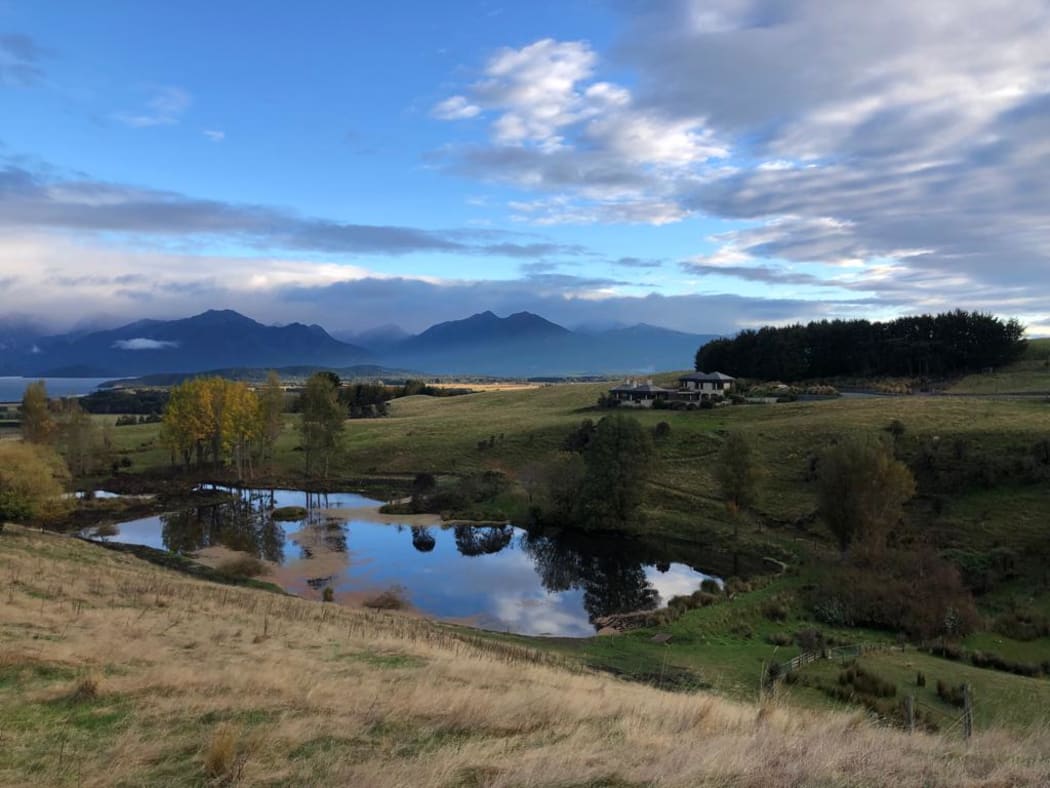
Manapouri Photo: Margaret Casey
The area around Winton in Southland had enough rain recently to green up the grass but there's still not much guts in it, our contact told us. The snow that was on the hills has disappeared and it's been quite mild, so growth is still happening. People are putting young cattle on to crops to help the grass recover. The farmer sent 300 lambs away this week and says the backlog at the works is finally starting to ease up. He's been direct drilling Italian rye grass in pre-grazed kale paddocks. Milk production on dairy farms is back a bit but cow condition has picked up with the fresh flush of grass.

